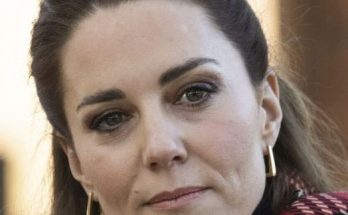
Who is Antoine Cheval?
Antoine Cheval’s name made headlines across France and beyond when he made the bold decision to marry himself. After enduring several failed relationships and unreturned proposals, Antoine took a step back to reassess his self-worth. Instead of allowing these experiences to define him, he chose to focus on loving himself. He solidified this commitment through a self-marriage ceremony that included vows, guests, and even a celebratory reception. Although the ceremony mirrored a traditional wedding in many ways, there was one major difference—Antoine was the only one at the altar.
What drew attention to Antoine’s story was not just the act of marrying himself but the statement it made. It was about rejecting societal expectations and prioritizing self-fulfillment. For Antoine, this wasn’t simply a personal milestone; it was a powerful declaration challenging the conventional views on love and partnership.
Understanding Sologamy: What is Self-Marriage?
Sologamy, or self-marriage, involves an individual marrying themselves in a symbolic gesture of self-commitment. While it may sound unconventional, it’s becoming a growing trend among those seeking independence, personal growth, and a deeper dedication to their own well-being. Unlike traditional marriages, sologamy is not legally binding but serves as a meaningful celebration of one’s self-worth and emotional independence. Supporters of sologamy see it as a bold statement of self-love, emphasizing that happiness doesn’t always require a romantic partner.
Critics argue that sologamy lacks the societal or legal recognition associated with conventional marriages. However, proponents like Antoine believe it affirms the importance of self-respect, allowing individuals to find contentment within themselves without needing external validation. For many, including Antoine, sologamy is a path to self-discovery and empowerment.
The Self-Marriage Ceremony: A Unique Celebration
Self-marriage ceremonies often bear a resemblance to traditional weddings, complete with vows, rings, and even guests in attendance. For some, it’s an intimate and deeply personal moment, while for others, it’s a joyous celebration of independence. In Antoine’s case, he invited friends and family to witness his vows to himself, followed by a festive reception. This public affirmation of self-love highlighted Antoine’s commitment to his personal journey and inspired others to consider the value of self-appreciation.
These ceremonies can vary widely based on personal preferences. Some individuals may seek the guidance of counselors or participate in preparatory programs to ensure they’re emotionally prepared for such a commitment. Sologamy allows individuals to reflect on past relationships, celebrate their own qualities, and move forward with renewed confidence and purpose.
Notable Examples of Sologamy Across the Globe
Antoine Cheval’s story is not the only example of self-marriage making waves. Over the years, sologamy has gained popularity worldwide. In 2014, Sophie Tanner, a British photographer, married herself in a public ceremony, affirming her independence and self-worth outside of traditional relationships. Her ceremony was attended by friends and family, marking a milestone in her journey toward self-love.
Similarly, in 2017, Italian fitness trainer Laura Mesi married herself after experiencing the end of a long-term relationship. For Laura, self-marriage was about reclaiming her happiness and sense of identity, proving that she didn’t need a partner to feel complete. The ceremony was both empowering and liberating, allowing her to redefine her own narrative.
In India, Kshama Bindu made headlines in 2022 by becoming one of the first to participate in a traditional self-marriage ceremony. As a bisexual woman, Kshama wanted to experience the joy of being a bride without needing a partner. Her ceremony included traditional rituals and was widely celebrated, emphasizing the significance of embracing one’s identity.
Self-Love as Personal Empowerment
The rise of sologamy encourages society to rethink its views on love and relationships. At its core, self-marriage is about self-acceptance, self-worth, and achieving happiness independently. This perspective pushes individuals to nurture a fulfilling relationship with themselves before seeking it with others. Antoine Cheval and others who embrace sologamy show that love can start from within, leading to personal empowerment and fulfillment.
By choosing self-marriage, individuals like Antoine signal that a meaningful and joyful life doesn’t necessarily require traditional romantic relationships. Sologamy serves as a reminder that self-love and acceptance can be powerful forces that lead to a more satisfying life.
Why People Choose Self-Marriage
There are many reasons why people choose sologamy, but it often centers around a desire for personal growth, healing, and independence. For some, it’s a way to move on from past relationships; for others, it’s about celebrating their personal journey. Many see self-marriage as a response to societal pressures to find a partner, opting instead to prioritize contentment within themselves.
In Antoine’s case, his decision was born out of repeated rejections and unfulfilled relationships. By marrying himself, he chose to validate his own worth rather than relying on others for approval. His self-marriage became a powerful statement of self-love, allowing him to redefine his life on his own terms.
Embracing Self-Love in a Modern Context
Antoine Cheval’s story serves as a poignant reminder that individuals can redefine love and relationships in ways that prioritize self-care. Sologamy challenges the traditional ideals of what happiness should look like, encouraging people to embrace self-love as a pathway to joy. Antoine, along with others who have chosen this path, shows that fulfillment can be found within oneself, without the need for a romantic partner.
This shift toward self-love reflects changing attitudes about relationships, where the focus is increasingly on personal growth and well-being. Sologamy offers a new narrative, suggesting that happiness and self-worth are complete within oneself.
Conclusion: Celebrating Self-Love
Antoine Cheval’s journey of self-marriage is a powerful illustration of the importance of self-love and personal empowerment. By marrying himself, Antoine embraced his individuality and challenged societal expectations. His story shows that happiness doesn’t necessarily come from finding a partner; sometimes, it comes from recognizing one’s own worth and committing to a life of fulfillment.
In a world where relationships are often viewed as the key to happiness, sologamy presents an alternative perspective. Antoine’s choice inspires others to prioritize self-acceptance and personal joy, proving that a meaningful life can be achieved with or without a partner. Ultimately, the message is clear: self-love is a powerful force that can lead to a richer, more meaningful existence.



